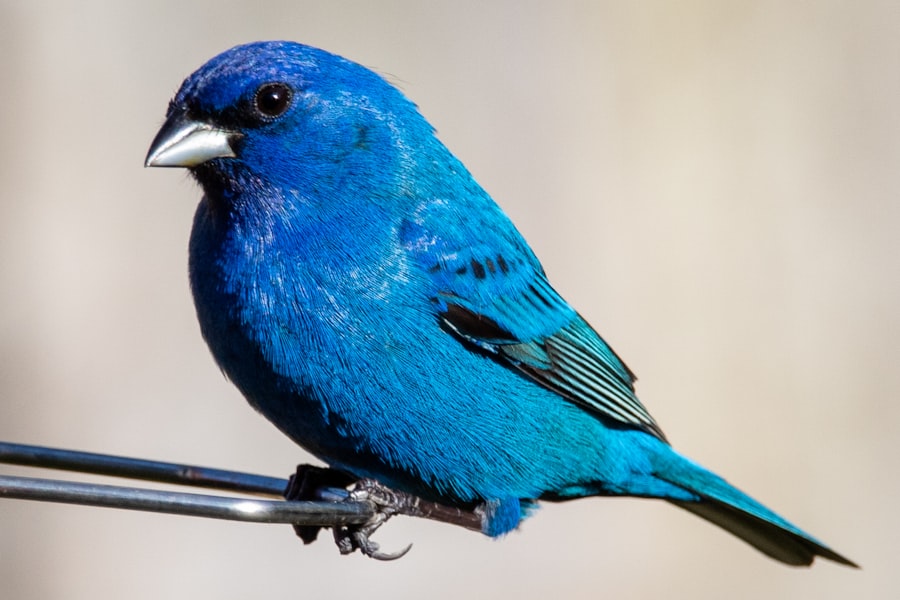Connecticut has experienced an increase in urban and suburban chicken keeping in recent years. In response, the state has implemented laws and regulations governing chicken ownership to protect the health and safety of both the chickens and the community. These regulations encompass various aspects of chicken keeping, including:
1.
Zoning regulations
2. Health and safety requirements
3. Permit and licensing requirements
4.
Restrictions on the number of chickens allowed
5. Noise and nuisance regulations
Individuals interested in keeping chickens in Connecticut should familiarize themselves with these laws to ensure compliance and avoid potential legal issues. Local municipalities may have additional ordinances specific to their area, so it is advisable to consult both state and local regulations before starting a backyard flock.
Table of Contents
- 1 Zoning regulations for keeping chickens in Connecticut
- 2 Health and safety requirements for keeping chickens in Connecticut
- 3 Permit and licensing requirements for keeping chickens in Connecticut
- 4 Restrictions on the number of chickens allowed in Connecticut
- 5 Noise and nuisance regulations for keeping chickens in Connecticut
- 6 Penalties for violating Connecticut laws about keeping chickens
- 7 FAQs
- 7.1 What are the laws in Connecticut regarding keeping chickens?
- 7.2 Are there any restrictions on the number of chickens that can be kept in Connecticut?
- 7.3 Are there any specific requirements for housing and fencing for chickens in Connecticut?
- 7.4 Are there any regulations on the disposal of chicken waste in Connecticut?
- 7.5 Are there any permits or licenses required to keep chickens in Connecticut?
Key Takeaways
- Connecticut laws allow for the keeping of chickens in residential areas, but there are specific regulations that must be followed.
- Zoning regulations in Connecticut may restrict the number of chickens allowed and dictate the distance of coops from property lines and neighboring homes.
- Health and safety requirements for keeping chickens in Connecticut include providing adequate shelter, clean water, and proper waste disposal to prevent the spread of disease.
- A permit or license may be required to keep chickens in Connecticut, and there may be fees associated with obtaining these permits.
- Connecticut may have restrictions on the number of chickens allowed based on the size of the property and the zoning regulations in place.
- Noise and nuisance regulations in Connecticut may address issues such as crowing, odor, and waste management related to keeping chickens.
- Violating Connecticut laws about keeping chickens can result in penalties such as fines or the removal of the chickens from the property.
Zoning regulations for keeping chickens in Connecticut
Specific Requirements and Regulations
Some towns may have specific requirements regarding coop size, setback distances from property lines, and the number of chickens allowed per property. Adhering to these regulations is crucial to avoid potential fines or legal action. Additionally, some municipalities may require a special permit or variance to keep chickens in certain zones.
Obtaining Approval
Obtaining approval to keep chickens may involve submitting an application, paying a fee, and attending a public hearing to gain approval from the local zoning board. Prospective chicken keepers must thoroughly research and understand the zoning regulations in their area before starting their chicken-keeping journey.
Research and Compliance
It is vital to research and comply with the zoning regulations in your area to avoid any potential issues. By understanding the specific regulations and requirements, you can ensure a smooth and successful chicken-keeping experience.
Health and safety requirements for keeping chickens in Connecticut

Connecticut has established health and safety requirements for keeping chickens to ensure that both the chickens and the surrounding community are protected. These requirements may include provisions for proper coop construction, waste management, and disease prevention. Coops must be constructed in a manner that provides adequate shelter, ventilation, and protection from predators.
Additionally, they must be kept clean and free of excessive waste to prevent the spread of disease and odor. Furthermore, Connecticut law may require chicken keepers to take measures to prevent the attraction of pests such as rodents and flies. This may involve proper storage and disposal of feed, as well as regular maintenance of the coop and surrounding area.
Additionally, chicken keepers may be required to adhere to biosecurity measures to prevent the spread of diseases such as avian influenza. This may include limiting contact between chickens and wild birds, as well as practicing good hygiene when handling chickens or their eggs.
Permit and licensing requirements for keeping chickens in Connecticut
In addition to zoning regulations, some municipalities in Connecticut may require a permit or license to keep chickens. This may involve submitting an application, paying a fee, and meeting certain criteria set forth by the local government. The purpose of these permits is to ensure that chicken keepers are aware of their responsibilities and are able to provide a suitable environment for their chickens.
Permit and licensing requirements may vary by town or city, so it is important for prospective chicken keepers to check with their local government to determine what is required in their area. Failure to obtain the necessary permits or licenses may result in fines or other legal consequences. It is crucial for chicken keepers to comply with these requirements to avoid any potential issues with local authorities.
Restrictions on the number of chickens allowed in Connecticut
Connecticut may have restrictions on the number of chickens allowed per property, which can vary by town or city. These restrictions are typically put in place to prevent overcrowding and ensure that chicken keepers are able to provide adequate care for their birds. Some municipalities may have a specific limit on the number of chickens allowed, while others may base it on factors such as property size or distance from neighboring properties.
It is important for prospective chicken keepers to familiarize themselves with these restrictions before acquiring chickens. Failure to comply with these limits may result in fines or other legal consequences. Additionally, some areas may have specific regulations regarding roosters, as their crowing can be a source of noise complaints.
It is crucial for chicken keepers to adhere to these restrictions to avoid any potential legal issues.
Noise and nuisance regulations for keeping chickens in Connecticut

Regulations on Noise and Nuisance
Connecticut has specific regulations regarding noise and nuisance related to keeping chickens. These regulations are typically put in place to address concerns from neighboring properties regarding noise, odor, or other disturbances caused by chicken keeping.
Provisions for Roosters
Some municipalities may have specific provisions regarding roosters due to their crowing, while others may have general noise ordinances that apply to all types of animals.
Minimizing Disturbances
It is important for chicken keepers to be mindful of their impact on the surrounding community and take measures to minimize any potential disturbances. This may involve keeping roosters in soundproof coops or limiting their presence in residential areas.
Waste and Odor Management
Additionally, chicken keepers should take steps to manage waste and odor to prevent any nuisance complaints from neighbors.
Penalties for violating Connecticut laws about keeping chickens
Violating Connecticut laws about keeping chickens can result in penalties such as fines, citations, or legal action from local authorities. These penalties may vary depending on the nature and severity of the violation, as well as the specific regulations in place in the municipality where the violation occurs. Common violations may include failure to obtain necessary permits or licenses, exceeding the allowable number of chickens, or causing noise or nuisance disturbances.
It is crucial for chicken keepers to familiarize themselves with the laws and regulations governing chicken keeping in their area and take steps to comply with them. This may involve obtaining necessary permits or licenses, adhering to zoning regulations, and taking measures to prevent noise or nuisance disturbances. By doing so, chicken keepers can avoid potential penalties and legal consequences while enjoying the benefits of raising chickens in Connecticut.
If you’re considering keeping chickens in Connecticut, it’s important to be aware of the laws and regulations surrounding poultry ownership. One key aspect to consider is the size of the coop needed for your chickens. According to Poultry Wizard, the size of the coop will depend on the number of chickens you plan to keep and the space available in your backyard. Understanding these requirements will help you ensure that you are in compliance with Connecticut laws while providing a safe and comfortable environment for your feathered friends.
FAQs
What are the laws in Connecticut regarding keeping chickens?
In Connecticut, the laws regarding keeping chickens vary by city and town. It is important to check with local ordinances and zoning regulations to determine the specific rules for keeping chickens in a particular area.
Are there any restrictions on the number of chickens that can be kept in Connecticut?
The restrictions on the number of chickens that can be kept in Connecticut also vary by city and town. Some areas may have specific limits on the number of chickens allowed per property, while others may not have any restrictions.
Are there any specific requirements for housing and fencing for chickens in Connecticut?
Connecticut may have specific requirements for housing and fencing for chickens, such as coop size, ventilation, and predator-proofing. It is important to check local ordinances and regulations to ensure compliance with these requirements.
Are there any regulations on the disposal of chicken waste in Connecticut?
Connecticut may have regulations on the disposal of chicken waste, such as guidelines for composting or proper disposal methods. It is important to be aware of and follow these regulations to maintain a clean and healthy environment for the chickens and the surrounding community.
Are there any permits or licenses required to keep chickens in Connecticut?
Some cities and towns in Connecticut may require permits or licenses to keep chickens. It is important to check with local authorities to determine if any permits or licenses are necessary for keeping chickens in a specific area.
Meet Walter, the feathered-friend fanatic of Florida! Nestled in the sunshine state, Walter struts through life with his feathered companions, clucking his way to happiness. With a coop that’s fancier than a five-star hotel, he’s the Don Juan of the chicken world. When he’s not teaching his hens to do the cha-cha, you’ll find him in a heated debate with his prized rooster, Sir Clucks-a-Lot. Walter’s poultry passion is no yolk; he’s the sunny-side-up guy you never knew you needed in your flock of friends!








How many feet from neighboring property is a chicken coop to be.
The person in back of us has chicken coops. They were right up against our garage. He moved them finally about 10 ten feet back. We are infested with rats in our garage and have done damage to stored items. Went to the police and they said nothing cane be done about it. There are small children in the homes in front of the garage. We just purchased 150 dollars to try and get rid of them. Will have to continue buying rat poison Why do we not have any rights to our property being damaged and not safe Live in Wallingford Ct
That sounds incredibly frustrating, and I’m sorry you’re dealing with this. In many towns, there are specific regulations about how far chicken coops must be from neighboring properties to avoid issues like this, but the rules can vary widely. It might be worth checking Wallingford’s zoning or animal ordinances to see if there’s a minimum distance requirement. If your neighbor isn’t following those rules, you could bring it to the town’s zoning enforcement officer or health department.
Rats can definitely become a problem near chicken coops if feed isn’t stored properly or if there’s easy access to food and shelter. It might be worth discussing the issue with your neighbor directly (if you’re comfortable) and suggesting that they take steps to secure their coop area, like using rodent-proof feeders and regularly cleaning up spilled feed.
If that doesn’t help, contacting the health department may be another option since rats can pose a public health risk, especially with small children nearby. Documenting the damage and any rat activity around your property might also strengthen your case.
In the meantime, traps and sealed storage for your belongings might help protect your property. It’s so unfair that you’re stuck covering the costs of this, but hopefully, addressing it through the proper channels can bring some resolution. Hang in there!